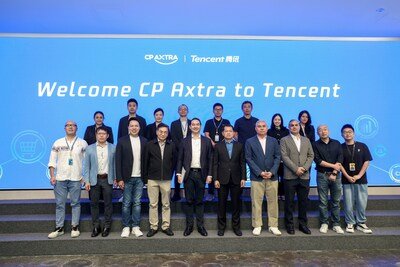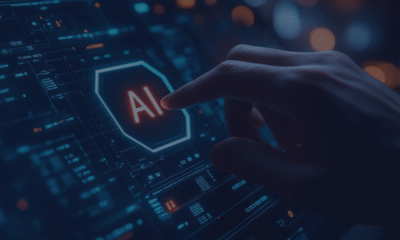Tools & Platforms
Google DeepMind CEO Demis Hassabis reveals AI can replace doctors in healthcare but not nurses; here’s how |

Artificial Intelligence (AI) has shifted from being a futuristic concept to a rapidly evolving reality impacting every industry. With advanced machine learning models, automation systems, and AI-powered decision-making tools, tasks once performed by humans are now handled with speed and precision by algorithms. This has triggered global concern about potential job losses. Top tech leaders have issued warnings that AI will significantly disrupt the workforce. Amazon CEO Andy Jassy has admitted that automation will reduce certain jobs within the company. Similarly, Nvidia CEO Jensen Huang stated that AI will impact “everybody’s jobs” in some capacity, although he expects it to also create new opportunities. Google DeepMind CEO Demis Hassabis predicts the most dramatic changes will occur within the next five to ten years, transforming entire job markets.
DeepMind CEO explains AI in healthcare can replace doctors but not nurses
When asked about the possibility of artificial general intelligence (AGI) performing all human tasks, DeepMind CEO Hassabis highlighted an important distinction:Doctors’ diagnostic tasks: AI could analyse medical data, scans, and test results faster and more accurately than human doctors, potentially replacing or assisting in diagnosis and treatment planning.Nursing and empathy-based roles: Nurses, however, provide emotional support, physical care, and human empathy that technology can’t replicate. A robotic nurse may be efficient but lacks the ability to emotionally connect with patients, a critical part of caregiving.This example shows that while AI in healthcare may replace certain intellectual tasks, professions relying on emotional intelligence will remain human-centered.According to Hassabis, the workplace of the future will integrate humans and AI collaboratively. AI will handle data-heavy, repetitive, and analytical processes, allowing humans to focus on creative problem-solving, emotional interaction, and leadership roles. This shift will require governments and industries to invest heavily in reskilling programs to prepare workers for AI-driven environments.
Other top CEOs warn AI will reshape jobs worldwide and urge workers to adapt quickly
Andy Jassy’s remarks highlight a future where AI automation tools replace repetitive and operational tasks. Amazon already relies on robotics and intelligent software to manage logistics, inventory, and supply chain processes. Jassy believes that as these technologies mature, fewer human workers will be required for jobs like order processing and warehouse management. However, he noted that the shift doesn’t necessarily mean fewer opportunities overall but rather a need for upskilling and reskilling so employees can transition into more technology-driven roles.Jensen Huang, whose company Nvidia provides the graphics processing units (GPUs) powering modern AI systems, offered a candid view on AI’s impact:“Everybody’s jobs will be affected. Some jobs will be lost. Many jobs will be created.” Huang believes AI’s productivity gains will help industries perform tasks faster and cheaper, which may reduce demand for certain roles but open new ones focused on AI development, data analysis, and advanced engineering. He expressed hope that economic growth from AI adoption will ultimately “lift society” rather than harm it.Demis Hassabis, CEO of Google DeepMind and a key architect of advanced AI systems, views AI as an additive rather than purely disruptive technology. He explained that as AI capabilities expand, new job categories will emerge—roles that use AI to enhance human output rather than replace it entirely. Historically, technological revolutions (like industrial machines or computers) displaced certain jobs but also created industries that didn’t exist before. Hassabis believes this trend will continue:“New jobs will be created that are actually better, that utilise these tools or new technologies.”AI’s role in jobs and healthcare related FAQsCan AI fully replace doctors?AI can handle data analysis, diagnostics, and treatment recommendations faster than humans, but doctors will still oversee complex decision-making and patient care.Why can’t AI replace nurses?Nursing requires emotional support, hands-on care, and human empathy—qualities that machines and robots cannot replicate effectively.What is Demis Hassabis’ prediction about AI and jobs?He predicts massive workplace changes within 5–10 years, with some jobs disappearing and new ones emerging.How are other CEOs reacting to AI job disruption?Amazon CEO Andy Jassy expects automation to cut some jobs, while Nvidia CEO Jensen Huang believes AI will affect “everybody’s jobs” but also create new opportunities.What kind of jobs will grow in the AI era?Roles focused on AI development, creative problem-solving, emotional intelligence, and advanced data management are expected to increase.Also Read | Instagram changes live streaming rules: Who can still go live and who’s restricted; check if you are on the list and other key details
Tools & Platforms
CP AXTRA Unveils Digital Transformation Vision and Partners with Tencent Cloud to Power AI-Driven Retail Tech

BANGKOK, Sept. 1, 2025 /PRNewswire/ — CP AXTRA, the operator of Asia’s leading wholesale and retail businesses — Makro and Lotus’s — based in Thailand, is accelerating its digital transformation journey as part of its commitment to shaping the future of smart retail. At the core of this vision is a commitment to leveraging cutting-edge artificial intelligence (AI) to significantly increase manpower efficiency, enabling team members to focus on higher-value, strategic tasks while driving online sales and aligning with the evolving needs of today’s consumers.
This transformation is supported by CP AXTRA’s strategic partnership with Tencent Cloud, the cloud business of global leading technology company Tencent. The collaboration, formalized earlier this year through a Memorandum of Understanding (MoU), combines CP AXTRA’s retail expertise with Tencent Cloud’s advanced technology solutions — setting a new benchmark for innovation in retail across Asia and beyond.
Under this partnership, CP AXTRA is deploying Tencent Cloud’s comprehensive suite of services, including Infrastructure-as-a-Service (IaaS), AI powered big data and database solutions, as well as advanced container management solutions such as Tencent Kubernetes Engine (TKE). These tools are instrumental in optimizing operations across more than 2,600 stores in Thailand, enabling scalable digital innovation and significant cost efficiencies.
A cornerstone of this transformation is Tencent Kubernetes Engine (TKE), which help CP AXTRA achieve elastic scaling, enabling IT infrastructure to adapt dynamically to fluctuating business demands. Complementing this, AI-driven innovations are revolutionizing inventory management and sales forecasting, laying the foundation for a more intelligent, responsive retail ecosystem.
As part of its digital expansion, CP AXTRA has also officially launched its Weixin/WeChat Mini Program, offering a seamless shopping experience for Chinese-speaking consumers across Asia. The Mini Program allows customers to explore and purchase a curated selection of Thai products directly from their smartphones, without needing to travel — making “Thailand to your hands” a reality. From everyday essentials to local favorites, all products are delivered with CP AXTRA’s trusted quality and service.
This initiative underscores CP AXTRA’s ambition to provide a cross-border lifestyle shopping experience that blends reliable Thai sourcing with the speed and convenience expected by modern consumers in China and across the region.
Chen Rui, Vice President of International Business and Managing Director for Southeast Asia at Tencent Cloud, said, “We are honored to partner with CP AXTRA on their transformative journey toward smart retail. By combining Tencent Cloud’s advanced AI and cloud infrastructure with CP AXTRA’s deep industry expertise, we are helping to solve complex challenges and unlock new opportunities for growth. Our solutions, such as the Tencent Kubernetes Engine, are enabling CP AXTRA to scale dynamically, optimize operations, and achieve significant cost efficiencies across thousands of stores. Together, we are setting a new standard for digital innovation in the retail sector and demonstrating the immense potential of cloud technology to drive sustainable business success.”
Tarin Thaniyavarn, Group Chief Technology & Data Officers and Group Chief E-Commerce Officer, CP AXTRA Public Company Limited, added, “At CP AXTRA, we are committed to redefining the future of retail in Southeast Asia through bold innovation and strategic partnerships. Our digital transformation roadmap is not just about adopting new technologies—it’s about empowering our people and creating smarter, more agile operations that benefit both our customers and our teams. By harnessing the power of artificial intelligence and working closely with Tencent Cloud, we are reducing repetitive workloads, enabling our employees to focus on higher-value tasks, and setting ambitious targets for online growth. This partnership is a testament to our dedication to sustainable, technology-driven progress and our vision to lead the region into a new era of smart retail.”
This partnership is more than a technological upgrade — it represents a transformative redefinition of customer experiences and retail innovation. By addressing key challenges in scalability, AI integration, and infrastructure optimization, CP AXTRA is strengthening its position as a retail tech leader in Asia. With Tencent Cloud’s proven global footprint, serving over 10,000 clients across over 80 countries, this alliance also further cements Tencent Cloud’s position as the trusted cloud partner for enterprises driving digital innovations worldwide.
About Tencent Cloud
Tencent Cloud, one of the world’s leading cloud companies, is committed to creating innovative solutions to resolve real-world issues and enabling digital transformation for smart industries. Through our extensive global infrastructure, Tencent Cloud provides businesses across the globe with stable and secure industry-leading cloud products and services, leveraging technological advancements such as cloud computing, Big Data analytics, AI, IoT, and network security. It is our constant mission to meet the needs of industries across the board, including the fields of gaming, media and entertainment, finance, healthcare, property, retail, travel, and transportation.
About CP AXTRA
CP AXTRA Public Company Limited, is an operator of Asia’s leading wholesaler and retailer, Makro and Lotus’s. The Company is based in Thailand, with operation across 10 countries. CP AXTRA is committed to fulfilling people’s lives with good health, love, joy, and well-being, by providing solutions and meeting customers’ daily needs with technology, innovation, and operational excellence.
With over 30 years of retail experience, CP AXTRA is a trusted partner for both B2B and B2C customers, offering a comprehensive range of products and services. Today, it manages over 2,600 offline stores in Thailand and Asia, with strong online presence.
Tools & Platforms
Alibaba’s AI Cloud Surge Challenges Tech Giants’ Dominance

Alibaba’s China Hong Kong-listed shares surged 15% following its recent quarterly earnings report, driven largely by robust performance in its cloud computing and artificial intelligence (AI) divisions. The company’s Cloud Intelligence Group reported a 26% year-on-year increase in revenue, with AI-related product sales maintaining triple-digit growth for eight consecutive quarters [2]. This has positioned Alibaba’s cloud services as a critical pillar for monetizing AI, mirroring the strategies of global tech giants such as Microsoft and Google [2].
Alibaba’s CEO, Eddie Wu, highlighted the strong demand for AI, stating that AI-related product revenue now constitutes a significant share of external customer revenue [2]. The company has continued to expand its AI capabilities, including the development of a new AI chip to support its cloud division and reduce reliance on foreign GPU suppliers [2]. This move aims to enhance performance and reduce costs in Chinese data centers, aligning with broader efforts to control more of the AI stack domestically [1].
Despite the strong cloud performance, Alibaba’s overall financial results showed mixed outcomes. Group revenue for the quarter totaled approximately 247.7 billion yuan, a modest increase that fell slightly below some forecasts [1]. While the cloud segment contributed to improved operating profits, other divisions such as China’s e-commerce and local services were affected by rising operating costs and aggressive price competition in the food delivery market [1]. Ele.me, Alibaba’s food delivery unit, reported margin pressures due to heavy subsidies and fierce competition, a challenge shared by other players in the sector [1].
The company’s financial strategy has shifted toward prioritizing high-value AI and cloud investments while reducing spending on lower-return projects [1]. Management signaled a potential pullback from aggressive subsidy tactics in food delivery and is exploring premium services and asset sales to improve unit economics. Alibaba is also considering an initial public offering (IPO) for its cloud unit, a move that could elevate the segment’s profile and attract independent valuation for its AI assets [1].
Investor reaction has been positive, particularly regarding the cloud and AI growth trajectory, though short-term concerns remain over margin pressures in local services and instant commerce. Analysts are divided on whether the AI and cloud segments can fully offset near-term profit challenges or if continued competition will keep margins depressed for several quarters [1]. However, the share price jump suggests that the market is optimistic about Alibaba’s long-term AI monetization potential.
Alibaba’s advancements in AI and cloud computing have global implications, increasing competition with major cloud providers like Amazon and Microsoft [1]. If the company’s AI tools and in-house chips scale effectively, it could offer a compelling alternative in regions such as Asia, Africa, and the Middle East. However, geopolitical factors and trade restrictions will require Alibaba to balance global ambitions with local supply chain and regulatory constraints.
Source: [1] Alibaba AI Revenue Rises While China Food War Hits Profit (https://meyka.com/blog/alibaba-ai-revenue-rises-while-china-food-war-hits-profit/) [2] Alibaba (BABA) June quarter 2025 earnings report (https://www.cnbc.com/2025/08/29/alibaba-baba-june-quarter-2025-earnings-report.html) [3] Alibaba’s cloud-computing business is thriving, and it has a … (https://www.marketwatch.com/story/alibabas-stock-rises-as-cloud-computing-business-shines-and-with-a-new-ai-chip-in-the-works-6bb26ce5)
Tools & Platforms
Armenia readies itself as emerging global AI hub / Armenia / Areas / Homepage

The Nvidia’s vice president Rev Lebaridian with Nikol Pashinyan (Photo by Armenia government)
A combination of Armenia’s Soviet past, American technological innovation, and successful entrepreneurship among its diaspora offers the landlocked country a remarkable opportunity to not only become the major IT hub in the South Caucasus but also to become an emerging centre for innovation
Firebird, a San Francisco and Yerevan-based startup, and the Armenian government have announced the development of a $500 million Artificial Intelligence (AI) factory in the landlocked South Caucasus country. A next-generation data centre, purpose-built to produce AI models and solutions at scale, will be completed next year. Firebird and Team Centre, another local venture, will finance the development while U.S. global tech giant Nvidia will be the technology partner. Nvidia is best known for its Graphic Processing Units (GPUs). Initially intended for video gaming, Nvidia GPUs are now sought after for scientific and artificial intelligence purposes. The company has a market capitalisation of $4 trillion.
Nvidia plans to establish 20 other AI factories across Europe in the coming years, claiming that they would boost AI computing capacity in the European Union tenfold in the next 10 years. AI factories are considered the bedrock for its Europe’s AI future. Nvidia will first establish “factories” in Germany, Sweden, Italy, Spain, and Finland, as well as outside the economic bloc in the UK, to “fuel the next industrial transformation”.
Nvidia opened an office and research centre in Yerevan in 2022. Coincidentally, one of Nvidia’s Vice-Presidents, Rev Lebaredian, is an ethnic Armenian and was instrumental in connecting the company with Armenian Prime Minister Nikol Pashinyan after he rose to power in 2018. He is also the nephew of Gerard Libaridian, former foreign policy advisor to Armenia’s first president, Levon Ter-Petrosyan, in the 1990s.
The announcement of the AI Factory partnership came at Nvidia’s GPU Technology Conference in Paris in June this year.In this initial stage, Armenia will receive thousands of the Blackwell GPUs rather than the higher end H20.
Nvidia is the biggest name in AI industry and is the latest to show interest in Armenia. The U.S-Armenia Strategic Partnership Charter, signed at the beginning of the year with the previous Biden administration, includes cooperation on AI and semiconductors.
On 11 August, Nikol Pashinyan’s press secretary told the media that two of three memorandums of mutual cooperation signed by Armenia and the U.S. at the recent Trump-facilitated White House summit on 8 August also concerned artificial intelligence, semiconductors, and energy security. This could relate to replacing Armenia’s Soviet-era Metsamor nuclear reactor by 2036, possibly with American Small Modular Reactors (SMRs), and to power the country’s AI future.
Power consumption is a major consideration for an AI data centre or factory such as Nvidia’s that will be scalable to 100 MW and potentially expandable in the future.
Currently, the Armenian government is attempting to nationalise the electricity network while its owner, Russian-Armenian businessman Samuel Karapetyan, is in pre-trial detention on attempted coup and corruption charges. The country, anyway, had a legacy of success even in the Soviet-era when it was often referred to as the “Silicon Valley of the USSR.” Post-independence, there were attempts to resurrect and develop this technological prowess even before Pashinyan.
If in 2008 the tech sector had a turnover of $96 million, it had reached $765 million in 2017 with a number of major U.S. tech companies such as Synopsis opening up shop. Armenia has also scored success in educating a new generation to work in this area too. The Tumo Centre for Creative Technologies, a diaspora-founded educational project for youth, was established in 2011 and has already expanded globally. Lebaridian, incidentally, is also on Tumo’s Advisory Board. Though Nvidia’s AI Factory will attract foreign specialists to the country, such initiatives will also prepare the younger generation for future employment opportunities. It is one of a few examples of how diaspora assistance to Armenia has been especially successful.
The Afeyan Foundation for Armenia is a founding investor in Firebird, and American-Canadian Noubar Afeyan will act as a strategic advisor and founding partner. Afeyan is better known to many as the co-founder of Moderna, responsible for producing one of the main vaccines during the COVID-19 pandemic.
“This is about building a launchpad for innovation – from Armenia to the world,” said Egyptian-American Razmig Hovaghimian, co-founder and CEO of Firebird. “We will invest in novel models, in robotics and the sciences, in partnership with leading universities from around the world, and build the capacity to incubate the next generation of innovators in Armenia.”
For Armenia, Nvidia’s presence represents more than just foreign investment. It signals a step toward embedding itself into a global innovation network at a time when AI is reshaping entire industries worldwide. If cultivated carefully, the partnership could encourage the further arrival of other leading tech companies, further accelerating Armenia’s growth as a digital economy.
“We are excited about the potential for U.S. technology exports and AI leadership to drive more innovation in Armenia’s dynamic tech sector, benefitting the United States and Armenia,” said U.S. Ambassador to Armenia Kristina Kvien. “Companies like NVIDIA continue to offer world-leading computing and AI solutions, and we are proud that they are the partners of choice for Armenian counterparts.”
-
Tools & Platforms3 weeks ago
Building Trust in Military AI Starts with Opening the Black Box – War on the Rocks
-

 Business3 days ago
Business3 days agoThe Guardian view on Trump and the Fed: independence is no substitute for accountability | Editorial
-

 Ethics & Policy1 month ago
Ethics & Policy1 month agoSDAIA Supports Saudi Arabia’s Leadership in Shaping Global AI Ethics, Policy, and Research – وكالة الأنباء السعودية
-

 Events & Conferences3 months ago
Events & Conferences3 months agoJourney to 1000 models: Scaling Instagram’s recommendation system
-

 Jobs & Careers2 months ago
Jobs & Careers2 months agoMumbai-based Perplexity Alternative Has 60k+ Users Without Funding
-

 Funding & Business2 months ago
Funding & Business2 months agoKayak and Expedia race to build AI travel agents that turn social posts into itineraries
-

 Education2 months ago
Education2 months agoVEX Robotics launches AI-powered classroom robotics system
-

 Podcasts & Talks2 months ago
Podcasts & Talks2 months agoHappy 4th of July! 🎆 Made with Veo 3 in Gemini
-

 Podcasts & Talks2 months ago
Podcasts & Talks2 months agoOpenAI 🤝 @teamganassi
-

 Mergers & Acquisitions2 months ago
Mergers & Acquisitions2 months agoDonald Trump suggests US government review subsidies to Elon Musk’s companies





















